This is the second part of a two-part essay on writers and Twitter. The first part is here. The essay also appeared in full on The Daily Beast.
Reader, I did it anyway. I put my qualms aside and continued my experimental foray into the Twittersphere. I even kept on following Salman Rushdie, and his Twitter feed grew on me a little, although I did find that when I turned back to my favorite book of his—Midnight’s Children—the entire enterprise was newly suspect. Does Saleem Sinai really have to be born at the stroke of midnight when India gains its independence? Why not 12:05 or 11:47? And the telepathic powers he shares with the other “midnight’s children”—isn’t the whole contrivance just a little Twittery? This is part of what makes spending time on Twitter so tiresome, at least for me: the endless personalizing of events both great and small, the human need to play pundit with the forces that overarch our lives, to feel like we’re participating.

I did like exploring Twitter as a new written territory, though: seeing what was possible to communicate in a 140-character tweet. Who did it well and found a voice of their own despite the limitations. Who didn’t bother to tweet coherently most of the time and still had a million followers begging for attention. I clicked more links on Twitter than I ever do on Facebook, partly because the veneer of personal connection has been stripped away and the communication is so much more telegraphic. Facebook is where you post your vacation pictures or connect with old friends; Twitter is all about work.
That’s another reason why I never cottoned to it. It did feel like work—and the wrong kind at that. It’s all ephemera, meant for instant consumption and destined for replacement by the avalanche of tweets to follow. (If you don’t believe me, look at some of the estimates for the lifespan of a typical tweet. This excludes, of course, the data being hoarded by the N.S.A.) I’d done some homework, so I had a pretty good idea of how often I should tweet in a day; that I should be sparing when it came to retweets; that following was a good way to gain followers; that if I wanted to gain an audience on Twitter—and keep as many of them as possible from un-following me—I had to offer something beyond a promotional platform for my book, an endless stream of reviews, events, links to Q&As, retweets of the users who read the book and tweeted me directly. Then you might as well be Tide laundry detergent. (But wait, Tide has 101,983 followers on Twitter! Who are they? What’s wrong with them?) I had to give my followers ‘me’ the writer, or at least some version of me that would amuse, enlighten, or strike a chord in 140-character bursts, make their lives better for following me, or at least more interesting. If I could do that, the marketing wisdom goes, they would show their loyalty by buying my book, pushing it on friends and coming out to my readings. Or at least I hoped they would.
That was the bargain. It wasn’t quite a devil’s bargain. But it felt murky enough to me that I could never quite buy in all the way. I felt needy.
I came to Twitter because I had a book to sell, and my misgivings about the whole enterprise meant that I would never be any good at it. A phrase comes to mind: I was “pissing into the void.”
For 1 year, 4 months and 22 days—or 508 days total—Twitter became part of my daily thinking ritual. Should I post that thought as a tweet? How about a picture of that lost parrot poster I saw at the park? Would that be funny? If I’m in Berkeley, is it worth tweeting about the reading I’m giving tonight in case some of my followers live out here? I never really tweeted enough to make it a worthwhile enterprise, not by any honest cost-benefit analysis (hours devoted to Twitter v. book sales), and I’ve come to doubt Twitter’s value as a marketing platform anyway. It’s much better at delivering news from the ground in a crisis or providing color commentary for the Super Bowl ads. But I did like having an outlet for ideas that had no other place and would have vanished otherwise.

I also liked hearing directly from the readers who found me on Twitter, like the one who tweeted this picture from Instagram of my memoir in her handbag:
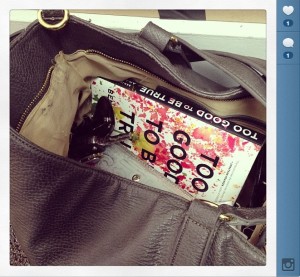
But really, aside from these nice side benefits, the whole thing is a boondoggle, at least it is for us. And by “us” I mean anyone who isn’t already a celebrity, a media star, an established brand, the literary equivalent of a laundry detergent. And even then I have a hard time seeing what being on Twitter gets you, other than the open and never-ending opportunity to waste a shitload of time you could be spending a lot more productively elsewhere. (Unless your personal assistant or your team of interns handles your Twitter feed, in which case I hope you’re enjoying your nice hot bath while the staff takes turns reading the daily blogs aloud to you.)
Joining Twitter doesn’t really make any sense for most writers. I mean, if you love it, go ahead. Keep Tweeting your heart out. You have a steelier one than I do. My friend A. was right when he said that you had to enjoy Twitter for it make any sense. But here is why I think joining Twitter actually works against the writer’s interests—starting with the obvious and moving on from there. This list is totally unscientific and probably incomplete, so fire away in the comments if I’ve missed anything.
That Giant Sucking Sound? It’s Your Life.
Twitter isn’t planning to go public in 2014 with an estimated market valuation of $11 billion because it’s in the democracy business, or disaster recovery, or it likes helping out with your local Neighborhood Watch. It’s that valuable in market terms because it wants to own your eyes, and everything on Twitter—from its look, to its speed, to the 140-character limit of a Tweet—is designed to create a hunger in you for what it offers, to keep you coming back for more. It’s fucking diabolical, but we’re all used to being hopeless click-addicts now. (I mean, I carry a warm Satanic object with me everywhere and pay $120 a month to let it steal my life.) Twitter works in direct proportion to how much time you spend on it: if you’re willing to burn entire days on end, you’ll have a satisfying time on Twitter with lots of links consumed, comments favorited, pithy exchanges with your followers and friends. If you just dip in from time to time, you’ll find that your response rate plummets. It’s the nature of the beast that you have to do your time if you want to join the conversation. If you don’t, you’re a stranger in Twitter Village and you’ll be treated accordingly by the natives: no replies, no retweets, no new followers, and a slow attrition of the ones you’ve already gained.
Twitter wants your life. Don’t give it up so easily.
Tweets Won’t Gain You Followers. Publishing in the Real World Will.
I know there are tweets that go viral and wind up getting quoted in the mainstream media. There are #hashtags to carry every little tweet far and wide and retweets to carry you into a whole new universe of followers. But in my experience, the only way to give a consistent boost in your follower numbers is to publish something in print, or give an interview on broadcast media (TV or radio), or have a Q&A run in a prominent paper or literary website. It wasn’t anything I ever did on Twitter that attracted more followers—it was being a writer in real life. Which demands the same time that Twitter wants, except you get a much more palpable return from it.
There is Such a Thing as Too Much Cleverness.
Exhibit A. That’s all I’ll say on the subject.

Tweeting Doesn’t Connect. It Makes You Lonely.
The glowing screen has a funny effect on the heart. It makes it want things that are elsewhere, always elsewhere. There is a longing built into our online lives that can lead us to healthy attachments with multiple partners, a kind of polyamory of the mind, but it can also encourage the furtive transmission of waxed-chest photos and cock-shots. (Sorry, Anthony Wiener. I can’t vote for you. I love a good second act as much as anyone, but the relentless pandering gets me down.) These are extreme examples of the kind of lonely misfires that Twitter allows, but I felt the temptation to seek comfort from my Twitter feed often enough to realize that it was only a matter of time before I did something embarrassing, reached out to a stranger in a too familiar way or revealed something in a tweet that I would later regret. I’d written a memoir dappled with embarrassments so I already knew what that was like, and I wanted to retain whatever was left of my dignity.
For me, there was one sure way to tell if things were getting risky: I checked who I was following. If I’d followed ten women in a row who all looked fantastic in their avatars (journalists, writers, the odd fashionista), it was time to take a break from Twitter and attend to my romantic life. And there are lots of crush-worthy avatars out there.
Picture a scene: it’s 10 in the morning, the coffee is already cold and I’m riveted to Maeve Reston’s Twitter feed for the second time that week, reading from the bottom up as she tweets from a Rand Paul rally in Simi Valley, California before heading to a three-day Mitt Romney retreat in Park City, Utah. Maeve, I type in my head, are your thumbs made of gold? The Romney keynote stirred me. Will you run away with me?
That’s what Twitter does. It chains you to your neediness.
Proximity Has a Price.
Distance is the writer’s friend. It’s nice to break out from your seclusion every now and then and give a reading to a room of actual people, or visit a college class that’s reading one of your books, or introduce yourself to someone on the subway who’s got his nose in your first novel. (I’ve actually done that before and it’s fun.) But for the most part the old adage holds true: You should never meet your heroes. And if your heroes are writers, you really don’t want to meet them. Writers are generally vain, and needy, and shut inside for most of the day listening to the voices in their head, so when they come out, their behavior can be erratic. There was the famous poet who once cornered the only black student in my graduate program at a party and fell into his arms from a combination of pills and liquor, murmuring “You look just like Prince …” Any woman under 30 who attends a summer writing conference like Breadloaf will learn who the gropers are right away and how to dodge them as artfully as possible.
Thanks to the whole ‘Thank you, Whitney’ episode I stayed away from Salman Rushdie’s memoir Joseph Anton when it came out this past fall, and I wonder if I’ll ever read it now that I don’t trust Midnight’s Children the way I once did. Mystery plays a big role in our love of books, and by using social media to promote yourself, you’re only demystifying your work for everyone who follows you. And that makes you lose potential readers.
My Twitter account is deactivated now. I won’t miss it. I’ll let that nefarious little bird with its stock-options sing in someone else’s ear. The next thing to go is my Facebook Author Page. Will anybody miss it? No. Then I’ll go back to being a writer again. Just a writer. Not a writer who’s wasting his time on social media.
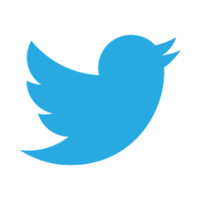
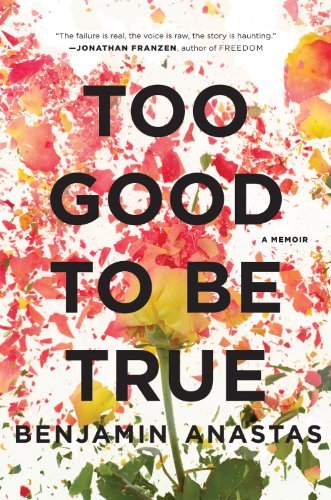


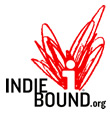

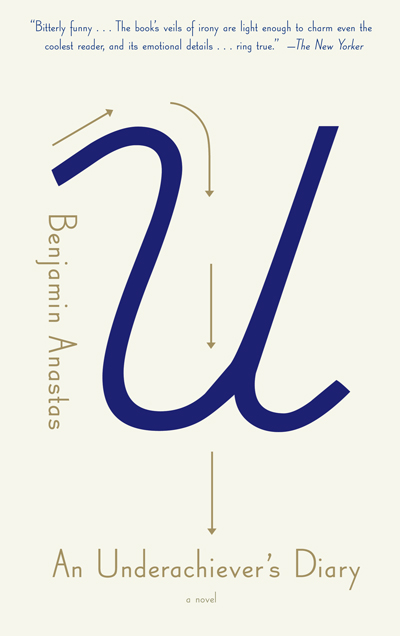


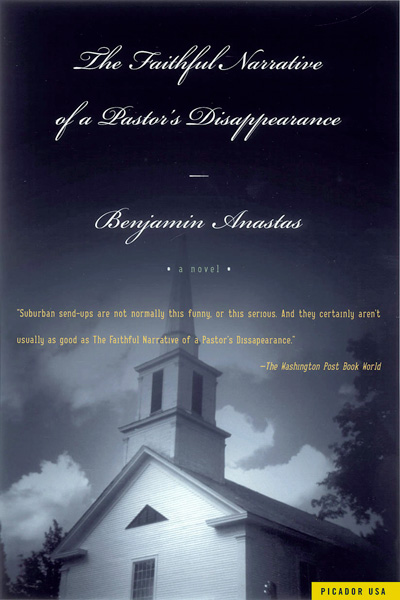
You are so amazing. I probably said the word “exactly” a million times while reading this. I love your style of writing and the clarity of your mind.
I think you keep your account on twitter but just delete the application off your devices. That’s my suggestion, and that’s what I did to myself. Everything you said is absolutely true. You are way ahead of the trend.
I find your perspective refreshing, especially when everyone else is pushing “Get on twitter. Get connected to social media.”
But I think there can be a balance. There have definitely been many occasions when I’ve inadvertently spent far too long perusing my twitter feed. And there have been some really great articles and authors I’ve found via twitter.
Either way, you made some great points. Thanks for the insight.
PS I’m going to tweet this, unless that’s not allowed.
I think you said a couple of really important things in here. One of them is you shouldn’t do it if your heart isn’t in it. Likewise, the value of Twitter (or any social media) as a sales tool is, in my opinion, far overrated. I know how I feel when I’m bombarded with “My book has climbed three spots in Amazon’s lists” posts, and it ain’t warm and fuzzy.
I agree with all your comments, Benjamin. Whatever small benefits we glean from modern communication technology pale in comparison to the time we waste on those media. The best activity a writer can do to help sell books is write.
I loved this because I’ve been feeling the same way and wondered if I was crazy for despising twitter and FB as a means of gaining a following and all that.
Years ago I liked twitter but back then it was ‘social media’. There were actual conversations and friendships formed. Nowadays it’s like getting blasted by tv commercials and tally lists.
I’d found a few books on building an author platform and started following directions and hated every second of it. It just didn’t feel right to me. I went so far as to set up an author account and experimented using that and my regular account. My regular account, known only for socializing and hanging out with others of like mind, could tweet the exact same thing as my author account to the exact same people and there was an obvious difference in response. That made no sense to me, especially since some people knew both my ID’s. The ‘Pro’ me was met with silence and sometimes contempt. The regular me got retweets and discussion. Wha?? So, is my ‘pro’ self viewed as competition while my ‘regular’ self is not?
And truly, it’s not only a time suck from actual writing, it enables that ‘needy’ self you mentioned. And FB? I don’t get it, especially when the tweet and FB message are duplications of what’s on your blog, if you have one.
I hit such a wall with all the social media stuff that people said I HAD to do that my writing locked up and my muse is still sucking her thumb while rocking back and forth in some dark corner of my imagination. I’ve been thinking for days this twitter/fb thing is NOT for me. (other than as my non-pro self for a bit of fun) and your post helped me sort out the confusion and sense of failure I was feeling.
I need to write quietly, with the door closed, and not be distracting myself with what’s hot, not and the drama wasting my time and energy.
Thanks for the insight.
Twitter (for writers) is not so much in what you say as it is in what you “hear” if you know how to “listen.”
With the right [free] tools, a manageable strategy, and an understanding of your target connections, Twitter is just one more place your readers, colleagues, booksellers and reviewers will reveal themselves.
In the eight seconds of attention most people give something on the Internet, Twitter’s platform provides an author plenty of time to earn that next click, bringing a target connection back to a website where they either buy your book or give you an email address so you can stay in touch by email – the #1 way content is shared on the Internet.
I just finished reading Rushdie’s memoir “Joseph Anton,” and I highly recommend it. You will even learn why midnight was the optimum time to be born. But I agree that sometimes TMI can hurt an author.
i can’t help but feel that by coming to twitter the way you did, you came in with the wrong mindset. you can’t just come into a community and expect people to jump on your bandwagon without really putting A LOT out there. especially for someone who nobody knows, coming on twitter and being all like “YO BUY MY BOOK” is just crass and no one wants to hear about it.
twitter can be an extremely powerful marketing tool, but in terms of marketing, it’s just one aspect of your whole platform and you can’t expect to rely on it heavily if your presence isn’t impactful to the community as a whole. and that’s really what twitter’s about: community. moreso than facebook or instagram. it’s a powerful way to help make connections and strengthen the ones you already have. twitter’s main benefit is its interactivity and its aether-like nature. how you can throw a thought into the void at 3 in the morning and have complete strangers shoot back at you right then and there.
above all else, it’s about maintaining a human connection with people and realizing that you being on there isn’t always about you, you, you. interacting with people on there helps show your fans that you aren’t some pretentious schmuck just there to part the money from everyone on there.
and to be honest, a year isn’t even long enough to really grasp the ebb and flow of twitter. there are so many cliques and groups on there that it’s impossible to even begin to understand where you might begin to fit in. maybe you want to be in with the writers, but you find soon enough that the writers you all like post bad tweets and never talk to people.
anyway, i didn’t mean to be disrespectful, but i think if you’re gonna come to someone’s house uninvited, you can’t put your feet up on the coffee table and start demanding beers without people wanting you to get out.
peace
I don’t usually comment twice but this post has me thinking. Maybe it’s because I can relate to the sentiment being expressed. There are writers who can multi-task and jump on the Twitters and go for it with marketing and platform building. There are others who beat you over the head with buy my books tweets. Others just hang out and talk, taking a break from writing. Perhaps the temperament of the writer helps in making social media useful. If so, extroverted writers are going to fit right in. Certainly the younger writers who have been a part of social media and the internet will have an easier time of it too. But some writers aren’t built for the pressure – real or imagined – of social media ‘feeling’ like having to jump through a set of hoops…like running another business on the side. I think social media is more difficult for some older writers (like me, for example) to wrap their heads around. It doesn’t feel authentic or community based. Sometimes it feels like a pyramid scheme: add ten friends a day and retweet 3X a day, and post a blog at least once a week…very recipe-ish.
I know it works for some people and doesn’t for others even when they’re using the same methodology to do it. It’s all right if not everyone tweets or builds their social media muscles. Maybe it will be something that comes after a book is finished, maybe not ever. But the point of being a writer is to write and if social media prevents that, then yeah, it’s ok to drop it. A person can always come back to it again later. Whatever works, right?
I look at twitter differently, but with the same conclusion. If you have 5,000 people following you, you probably are following 5,000 yourself. Can you read the tweets of 5,000 people in one day? No. And neither can they. My conclusion: few tweets are read. What’s the use?
Right?!
These are exceptional comments. I love social media–no, wait, I hate social media!
This, from Wulfie, really nails it for me: “I think social media is more difficult for some older writers (like me, for example) to wrap their heads around. It doesn’t feel authentic or community based. Sometimes it feels like a pyramid scheme: add ten friends a day and retweet 3X a day, and post a blog at least once a week…very recipe-ish.” I think there is a real generational difference in the relation to social media, as Wulfie says. For people who grew up with it, being on Twitter feels like a natural extension of being alive, so why not tweet your heart out; for those of us who didn’t grow up with it, the social media posture feels false somehow, like work, rather than communicating.
In any case it’s been great to have so many readers for something I just posted here at first. The Daily Beast picking it up certainly helped spread it far and wide.
And incidentally, what do you do about a fake twitter account?
https://twitter.com/benjanastast
Thanks so much for the post, Benjamin, and for all those who wrote in. Particularly Wulfie. I am a 53-year-old poet with a debut novel coming out this fall, and I have spent the better part of the last eight months trying to do what everyone (read: publicist) tells me I have to do. And none of it comes naturally. The only part of the process that has felt “true” is blogging about how uncomfortable this all is (see http://beyondthemargins.com/2013/05/living-on-both-sides-of-the-brain/ ). But I do believe, as Wulfie suggested, that a big part of this is generational. I am temperamentally overwhelmed by social media…it makes the world far too big for me, and I assume that has something to do with the fact that i came to it so late. I prefer a smaller slice of my world. And I have found that placing myself at the center of the i-universe is not just bad for my concentration and for my writing but is actually bad for my soul (if you will please allow it). “Suck” is the word people tend to use — and for good reason.
You make many valid points. I probably spend too much time on twitter. But I would like to point out that many people said the same thing about writing and reading blogs before twitter. Every writer has their way to gain an audience through social media. I think blogging is part of that package and that is the part that you have chosen. For some writing a blog can take an incredible amount of time, time that should be spent on “real” writing, some would say. I hate Facebook. Always have and so I never had a Facebook page. I prefer the immediacy of Twitter.
I am discouraged that knowledgeable people such as yourself STILL try to make professional media out of social media. You said that you wanted to use twitter to sell a book. Why on Earth did you think that would work?? Twitter is a newspaper, not a sales medium.
Tell that to Tide–or rather, to Proctor & Gamble, which has dedicated at least some of their vast resources to maintaining a Tide Twitter feed that now has 102,196 followers. Are they getting Tide News? And there are thousands of other examples. So while Twitter does transmit news in real time–some of it false and misleading–there are plenty of others who’ve tried to use it as a marketing platform. And right now, publishers are pushing a lot of authors to think of Twitter that way.
Tide and Proctor & Gamble BOUGHT this following. They did not earn it through establishing personal communication and relationships with said following. I bet half of those followers are employees and their friends/relatives. Again, if you are trying to TAKE from this system, you are on your own – it may work – but it shouldn’t. Focus on GIVING to the system and you might be surprised with what happens. The bottom line, however, is that if this medium is not providing you with entertainment, then it is probably not for you.
I think your “bottom line” is exactly right and it’s what A., my friend the social media guru, told me right off the bat. I tried to make that one of the takeaways.
This part has extraneous hyphens in “color commentary” and “second act.”
Thanks. Fixed it.
What a wonderful essay. Beautifully articulated. And this is also why, as a writer as well, I’m leery of Twitter and Facebook, even though I linger there, needily, reluctantly—you have a thought and you release it, and it never really can develop into something more complex or articulate. And with me, I usually regret it. The thought, it’s lost, given away, whereas if it were worthwhile—not they are always worthwhile, but then, what’s the point— I would have taken the time, if not uttered so quickly, to develop it into essay, or story, whether directly or indirectly. At least for me. Into the void instead of remaining an integral, or pointless, part of my inner life. And I myself buy other writers’ books when I read smart, insightful pieces of theirs, either online or in literary journals, or interesting reviews. There are plenty of writers I follow whom I have never read, something I hadn’t really thought of until now, and in some ways their feeds make me less likely to read their work. So what am I doing there, honking away? Needy and lonely indeed. Thanks, Benjamin, for such a thought-provoking piece.
p.s. Of course, I found this via Twitter! So maybe I’ll just stay there, quietly.
Staying on Twitter quietly is a good solution, I think. For me it’s just better to give it up cold turkey.
Your response to the essay(s) is much appreciated!